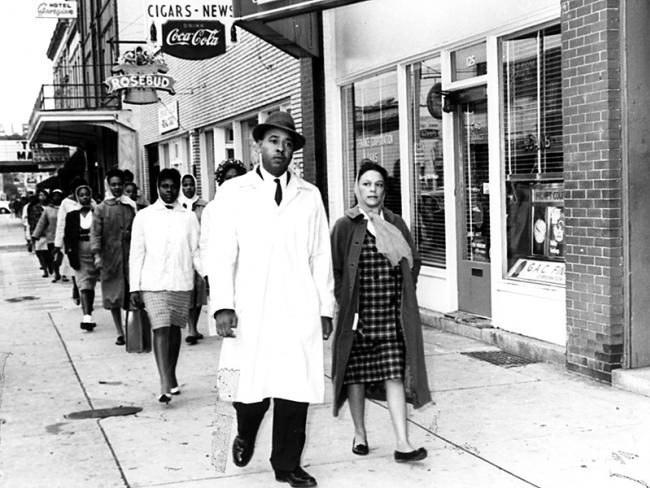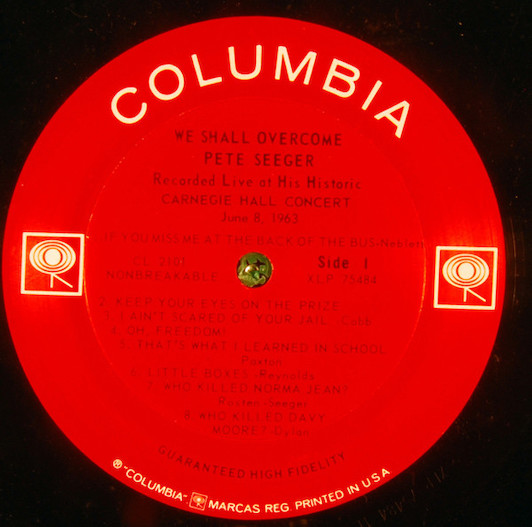We Shall Overcome by Pete Seeger
1961
Albany Movement
Albany, Georgia
November 1961
The Albany movement sought to fight the system of racial segregation. It was made up of multiple Civil Rights Movement organisations in Albany such as the SNCC, the National Association for the Advancement of Colored People (NAACP) to name a few.
Members sung freedom songs during the meetings which became a frequent part of the marches. We Shall Overcome was labelled as the 'anthem' of the Civil Rights Movement which is seen to have taken lyrics from a hymn by Charles Albert called 'I'll Overcome Someday'.

